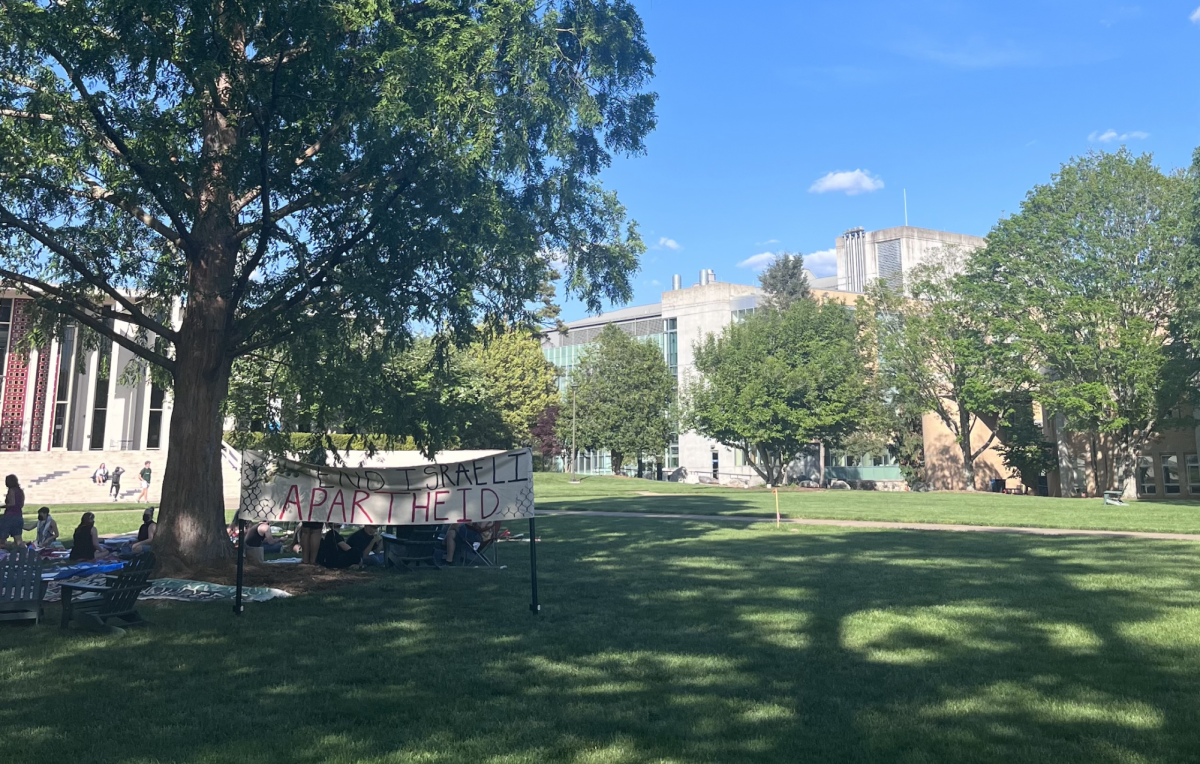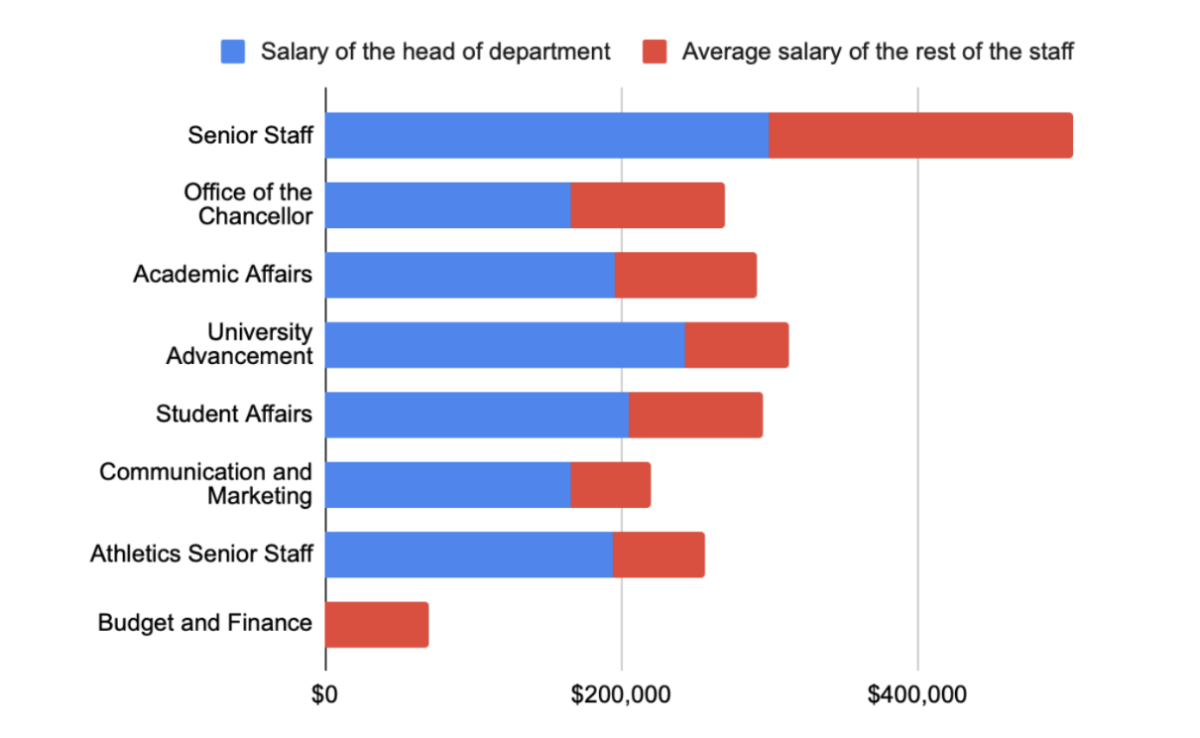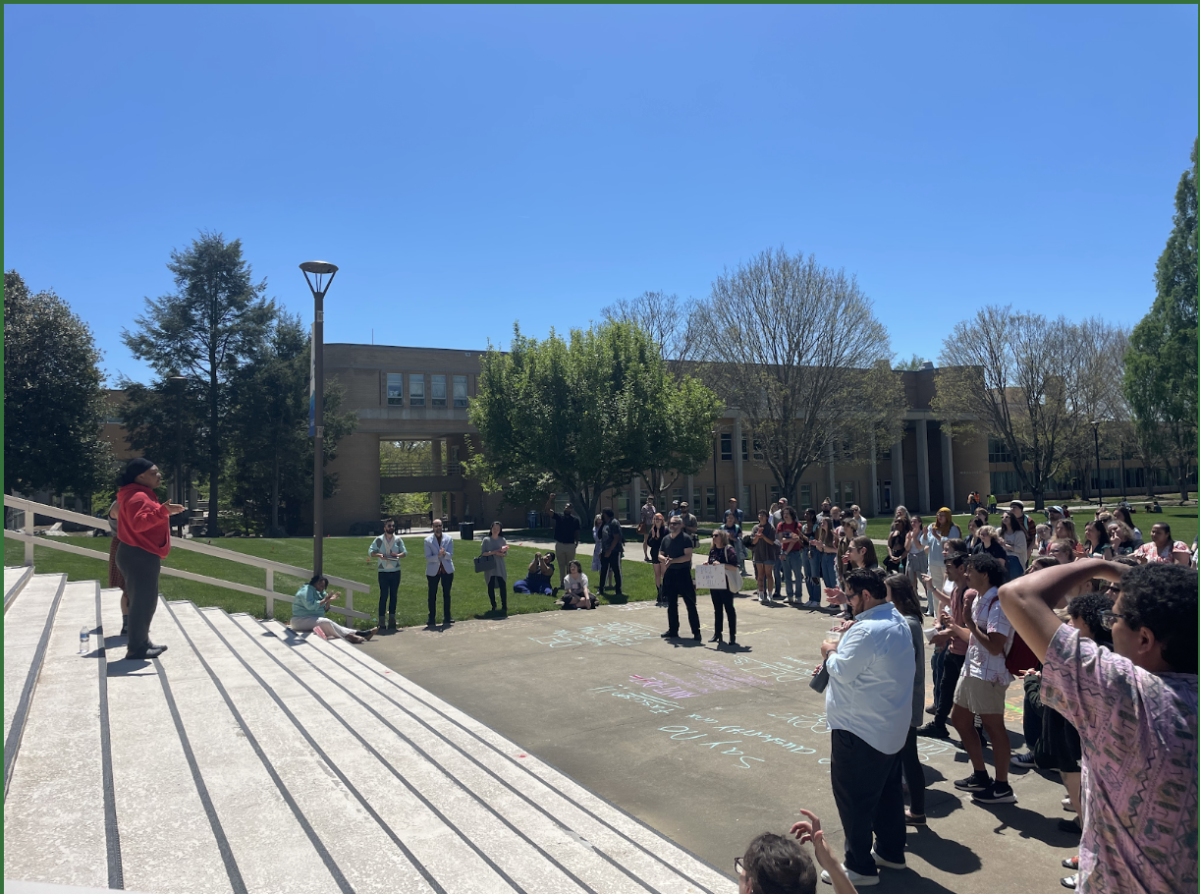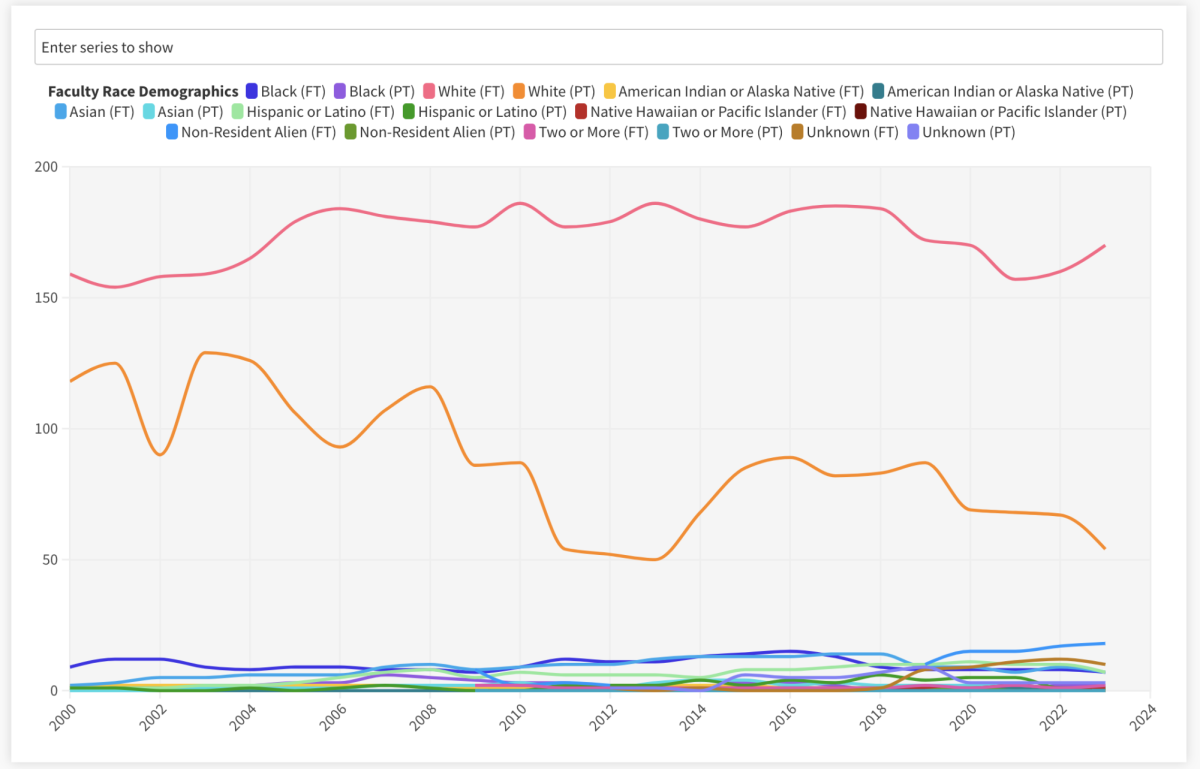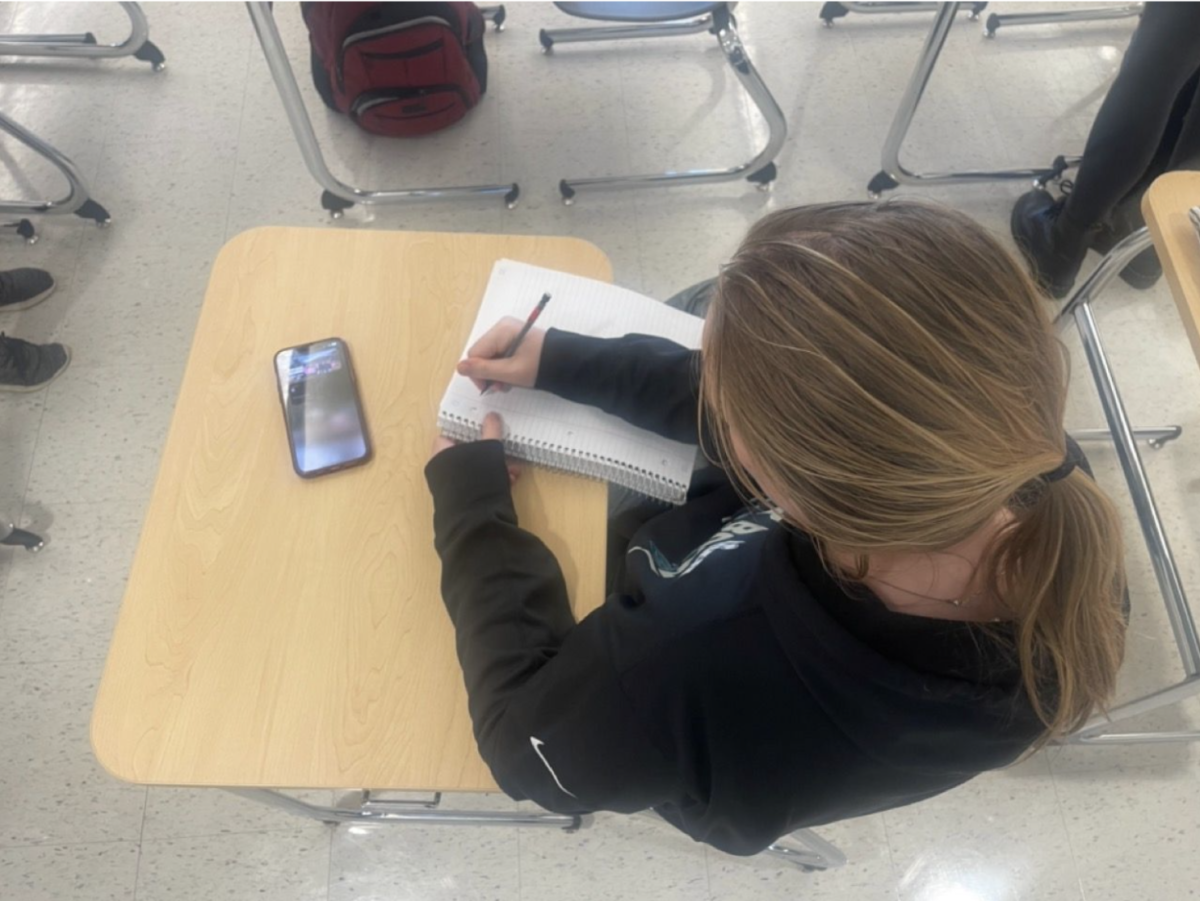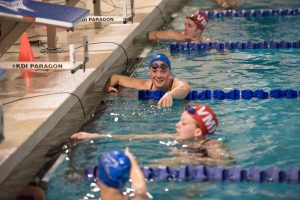
By Kathryn Gambill
Alexandra van Dorsten used to dream about swimming.
“We don’t have enough people for this relay! You have to jump in and save the day!”
She wakes up. She did not get to swim the relay.
“I had so many dreams about swimming after I left,” van Dorsten said. “I had so many dreams that I was back on the team.”
Van Dorsten, a 22-year-old UNC Asheville graduate, swam competitively for almost 10 years. She started swimming in the 7th grade, and did not plan to swim in college until she fell in love with UNCA’s team.
“It’s really cool to have a group of people that you just automatically have to be friends with coming into college,” van Dorsten said. “Coach Elizabeth was kind of like my mom when I first got here and it was nice to have that support and the routine, too. Because otherwise I would’ve been really lost.”
UNCA’s head swim Coach Elizabeth Lykins started the swim program from scratch in 2012. She said she recruited van Dorsten to swim on the team.
“I rely a lot on my current team to give feedback,” Lykins said. “When they visit, they stay the night, they stay overnight, they go to meals, they hang out, they socialize, they go to the cafeteria. They do all those things with the team. And, just kind of like making friends, you decide if that’s going to be a good fit for you or not.”
The recruiting process included inviting potential swimmers to visit the campus, meet the team and decide if they would be a good fit for the program. Lykins said recruiting an athlete feels kind of like conducting a job interview.
Van Dorsten said she planned on attending UNC Chapel Hill until she changed her mind last minute and decided she wanted to swim. She was the latest commit the UNCA team has ever had.
“Alexandra’s a very smart young lady,” Lykins said. “I knew she would do well at the academic level here, which is also a very important part of our recruiting process. We want to ensure that we’re getting people who can also be academically successful. We don’t want to bring in swimmers just because they’re great swimmers if there’s no way they can be successful at our university.”
Janet R. Cone, the athletics director at UNCA since 2004, said being a student athlete means more than being a champion in athletics.
“The things that are important to you, you’ll find time to do them,” said Cone. “So student athletes know because of what we value in athletics, that academics is first. You’ve gotta prioritize your academics first or you don’t get to play. And second, we want them to be the best student athletes and we know that’s two things. Student and athlete.”
During her three years of competing on UNCA’s swim team, van Dorsten had a 4.0 GPA. She completed her bachelor’s degree in biology this May.
Van Dorsten said she started to feel like she was owned by the team. There were so many things she wanted to do, but being on the swim team held her back. So she stopped swimmig at the end of her junior year.
“I just found myself my junior year not putting the effort into my training that I had in the past two years,” van Dorsten said, fidgeting with her keys. “It kind of bothered me. But at the same time, I just didn’t have that motivation anymore.”
If she had stayed on the team her senior year, there was a chance she would have been captain. She said she would have been a role model for the rest of the team, and did not want to appear apathetic to the freshmen looking up to her.
Coach Lykins said while she felt sad to lose van Dorsten, she did not try to convince her to stay on the team. Her heart just was not in it anymore.
“I really loved what she brought to the team,” Lykins said. “Unfortunately, she just decided she didn’t want to do it anymore. Unfortunate for me, not unfortunate for her. It seemed to be the right choice for her.”
Van Dorsten decided leaving was best for herself and the team. Even though she would have been a strong competitor and scored points, she said attitude is more important.
One day before practice at the end of her junior year, Van Dorsten sat down with her team and told them she was leaving. She said she cried. Some of her teammates cried with her.
“When swimming ended, I kind of felt like I should have been graduated,” van Dorsten said. “Like, why am I still in school when I’m not swimming? And so I felt like school was over when it wasn’t. I don’t know. I kind of crashed and burned that semester, but then it got better after that.”
Van Dorsten said after she quit her grades dropped. She stopped going to class and went through a period of depression. The worst part about leaving the team, she said, was losing her routine and no longer seeing her teammates every day. She had to rebuild her social life.
“I kind of lost touch with a lot of the team,” van Dorsten said “I didn’t have that routine and I didn’t get the dopamine rush every day, and the endorphins and stuff. I don’t know. I just got really sad for a while.”
Van Dorsten did not exercise for an entire year after leaving the team. She went from two practices a day to not lifting weights, swimming or running. She said the lack of exercise contributed to her depression and she lost 30 pounds in two months.
While it was not an easy transition, she said things eventually started to improve.
“It took me a while to start actually being active and consciously making an effort to be active,” van Dorsten said. “Once I started doing that, I started feeling better. Now, I go for a lot of hikes, or I’ll force myself to go for a run every once in a while.”
Once she realized her newfound freedom, van Dorsten said she filled her senior year with all the things she dreamt of doing while on the swim team. She got involved with the Asheville community and made a lot of new friends.
She started contra dancing, which lead her to learn other types of dances, like bachata, salsa and swing. She found a love for mountain biking and rock climbing. She said she learned she likes to camp and loves hiking at Black Balsam.
“The best part was that I had my weekends and I could do whatever I wanted with them,” van Dorsten said. “I went to Charleston for a dance weekend one weekend and I was able to go to the Women’s March in D.C. I could go home when I wanted to go home. I could go camping. I could visit my friends.”
In the end, van Dorsten was able to enjoy both the experience of being on a team as well as the freedom of being just a student. She said she feels glad she had her senior year to herself, but she also feels grateful for the bonds she made with the people on her team.
Van Dorsten said being on a team was a great opportunity and encourages people to not fear the commitment of being a collegiate athlete.
“It was worth it for the three years that I did it,” van Dorsten said. “And it’s not like the time and the commitment was the reason that I quit. I could’ve kept doing it. I could’ve made it my fourth year. I just didn’t think I was going to make it happy.”
While the swim team may have lost a great competitor, Coach Lykins said van Dorsten has gone on to do great things.
“She’s really free-spirited,” Lykins said. “She enjoys life to the fullest whenever she can. I actually think she got better at that when she left swimming. I think she felt quite a bit of pressure from swimming and stress on herself and she did a much better job of enjoying herself and having fun once she was finished swimming.”
